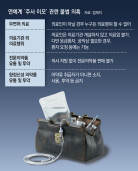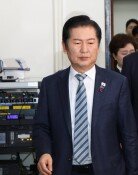New Year of Great Advancement Dawns
New Year of Great Advancement Dawns
Posted January. 01, 2008 04:10,
The new year of 2008 marks the 60th anniversary of the Republic of Korea as well as signals the beginning of the Lee Myung-bak administration. The whole nation ushers in 2008 with more heightened hope than in the past. The Dong-A daily also places high hope with the new government that the nation and citizens could enjoy easy and happy lives under the new leadership.
The New Year should be the first year to restore our proud national identity. Despite remarkable development in the economic and political fields that surprised the world since the democratic founding, Korea has been swayed by the historical views and forces tormenting our modern history in the past five years. President Roh Moo-hyun took the lead of such forces by criticizing that, Our nations history is full of humiliation in that justice was defeated and opportunism flourished.
However, it was a fortunate and right choice to hold the general election with the help of the United Nations and founded the Republic of Korea under the flags of market economy sixty years ago. This is evidenced by the sad reality of North Korea where a number of citizens starve to death.
South Korea is the only nation among the newly independent countries after the World War Ⅱ that has succeeded in establishing industrialization and democracy and in joining the ranks of advanced nations just in the span of 40 years. Comparison with the Philippines, Pakistan, Indonesia and Myanmar that gained independence in similar period brings significant contrast with our nation.
As for the Philippines, the nation was the wealthiest nation second only Japan in Asia until the 1950s. The Gross National Income per capita of the Philippines in 1955 was 190 dollars, while that of Korea was just 65 dollars. Yet, the GNI per capita of Korea stood at 17,690 dollars as of 2006, 12.5 times larger than that of the Philippines (1,420 dollars).
Developed nations in Europe witnessed their civic democracy starting from absolute monarchy has been developed throughout hundreds of years. By contrast, Koreas democratic advancement suffered many ups and downs since its process had to be compressed. However, if the nations history has no national legitimacy and is ruined by dictatorship and corruption as the left wing force argues, we have to ask them where our marked achievement came from?
Our society has wasted the past five years fighting for ideology which goes against the current worldwide trend. Gaudy rhetoric and outdated left-wing ideology of the Roh Moo-hyun government threw the national affairs into chaos and brought about scars and pain to many people. The spirit of times of Year 2008 demonstrated by the people who chose Lee Myung-bak is to discard empty rhetoric and to take care of the reality and kernel of peoples livelihood.
We are standing at a crossroads where the national fortune can be determined. For the past five years, Koreas economy has been losing its momentum and nations morale after failing to find its future economic growth engine while being stuck between the advanced and developing countries. Our per capita GNI surpassed 20,000 dollars in 2007, 12 years after we achieved 10,000 dollars of per capita GNI in 1995. Japan and Singapore accomplished this in five or six years. Now we desperately need a true change for a new leap forward.
The next ten years will be decisively important. We can advance to the ranks of advanced nations among The Organisation for Economic Co-operation and Development (OECD) if restructuring and the wide-ranging institutional reform are succeeded. But, if we fail, our economy will lose it economic dynamic and fall into long-term economic recession.
The internal and external economic conditions we face are not favorable for us to usher our nation into the ranks of advanced economies. The major task of the economy is to reduce the intervention by the government and facilitate its market function so as to boost creativeness of the private sector and encourage entrepreneurship. In order to do this, we have to enhance our industrial structure and have technological innovation drive the nations economic growth.
In addition to the growth rates, what kind of the economy we create matters. As long as the society observes the gap between the haves and have-nots widening and the middle class collapsing, the nation cannot become an advanced nation. The method of Roh Moo-hyun administration which takes wealth away from the wealthy and distributes it to the poor cannot remove the social disparity. The key to this solution lies in nurturing middle class through encouraging investment and creating jobs. We have to build a society where the quality of living standard and individual happiness are moving up together.
In order to join the ranks of developed nations, the new administration should establish the law and principles that dont tolerate the illegal activities of labor and left civic groups. The Roh administration, aiming to mobilize them as pro-government forces, hampered the sound growth of various sectors by neglecting their wrongdoings and illegal activities. The sense of securing life employment possessed by the Korea Teachers and Educational Workers Union (KTU) and calling for unconditional equality served as an obstacle to build the nations competitiveness. In the New Year address, President-elect Lee Myung-bak stressed the law and order in our living, which is the necessary task we have to realize.
We have to secure social capitals that accelerate the cooperation between individuals and groups such as trust, norm, and institutes. According to the figures released by Transparency International (TI), a non-governmental organization leading the fight against corruption, Korea ranked the 43rd place among 180 nations. It is shameful. The experience in the world history tells us that growth often accompany corruption. The new administration should prevent predomination and corruption of relatives and close aides of the president. When transparency and reliability are increased in all sectors including politics and economy, Korea could see itself make a great leap toward advanced nations.
We have made successful changes in government through elections so far, but failed to have the democracy take firm root in our society. As seen in the December 19 presidential election, the basic elements of democracy such as dialogue and comprise have long been replaced by ideological disputes in the political circle. The nations party politics has failed to anchor down in our democracy. In order to take our politics to a new level, we have to realize the reliable politics centering on party politics and establish the forum to have dialogue between the president and opposition parties.
The future of the six-party talks is uncertain as North Korea has failed to declare its nuclear programs by the end of 2007. If there are no signs of progress, the establishment of the peace regime on the Korean Peninsula may go for nothing or postponed forever. On the contrary, if the nuclear development is resolved on the level that North Koreas export of nuclear materials is banned and the North Korea-U.S. relationship turned around, South Korea could face isolation. Moreover, the China-Japan relationship is getting close.
We have to respond to the Korea-U.S. alliance by replacing it with a new value alliance combined by the politics and economy. Although the president-elect pledged that he will strengthen the ties with the U.S., the New Year will become an important in terms of proving its diplomatic capacity.
Our nation rediscovered our remarkable capacity last year. The wave of volunteers gathering on the shores of Taean County showed their commitment to save oil-soaked beach. They sweated despite the cold weather while rubbing greasy rocks and pebbles. Their passion and commitment served as the driving force that makes Korea today. We have to put our strength together to make a giant leap forward. The year 2008 should be the fist year of those efforts. The Lee Myung-bak administration should not lose its first determination to serve the nation with humble heart and dedication.







